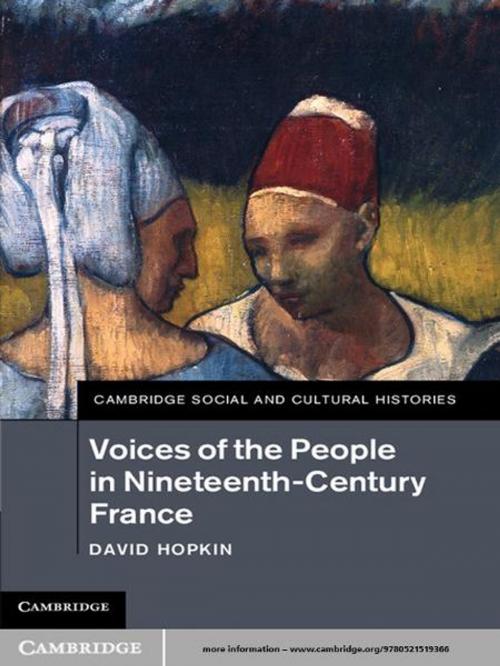| Author: | David Hopkin | ISBN: | 9781139365413 |
| Publisher: | Cambridge University Press | Publication: | April 26, 2012 |
| Imprint: | Cambridge University Press | Language: | English |
| Author: | David Hopkin |
| ISBN: | 9781139365413 |
| Publisher: | Cambridge University Press |
| Publication: | April 26, 2012 |
| Imprint: | Cambridge University Press |
| Language: | English |
This innovative study of the lives of ordinary people – peasants, fishermen, textile workers – in nineteenth-century France demonstrates how folklore collections can be used to shed new light on the socially marginalized. David Hopkin explores the ways in which people used traditional genres such as stories, songs and riddles to highlight problems in their daily lives and give vent to their desires without undermining the two key institutions of their social world – the family and the community. The book addresses recognized problems in social history such as the division of power within the peasant family, the maintenance of communal bonds in competitive environments, and marriage strategies in unequal societies, showing how social and cultural history can be reconnected through the study of individual voices recorded by folklorists. Above all, it reveals how oral culture provided mechanisms for the poor to assert some control over their own destinies.
This innovative study of the lives of ordinary people – peasants, fishermen, textile workers – in nineteenth-century France demonstrates how folklore collections can be used to shed new light on the socially marginalized. David Hopkin explores the ways in which people used traditional genres such as stories, songs and riddles to highlight problems in their daily lives and give vent to their desires without undermining the two key institutions of their social world – the family and the community. The book addresses recognized problems in social history such as the division of power within the peasant family, the maintenance of communal bonds in competitive environments, and marriage strategies in unequal societies, showing how social and cultural history can be reconnected through the study of individual voices recorded by folklorists. Above all, it reveals how oral culture provided mechanisms for the poor to assert some control over their own destinies.















